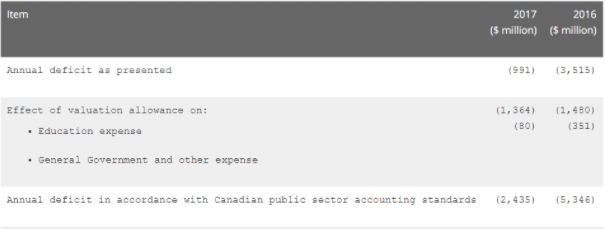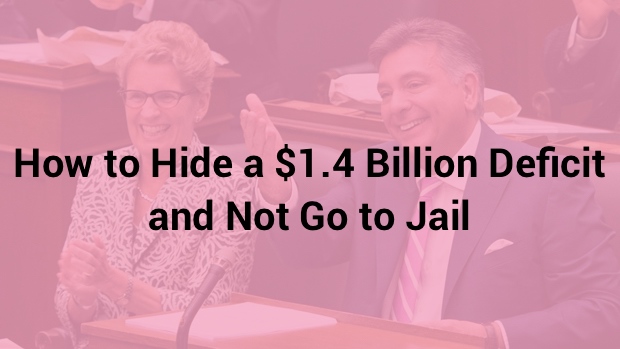March is an exciting month for me.

For one, I am almost certain that it will be the last March break that my older child will stay at home. ? Next year, she’s going to JK and we will likely enroll her in a camp. (I can’t believe she’s already 4!)
For two, one of our rentals is undergoing renovation after the tenants left at the end of January. We are very close to securing another set of tenants for May.
For three, another rental’s tenant just decided to leave our house by giving us…less than 30 days notice. ? It sucks that she’s leaving on such a short notice but she’s helping us to coordinate with the contractors, so the house can be show-ready by April 1.
It’s also a bonus that the most recent rent has shown an increase of 22% from the old rent that I had!
For four, we were finally able to finalize a financing deal after two months of waiting. It wasn’t easy and it was pretty stressful to go through the process given the increase scrutiny by the bank. Thanks to our amazing mortgage broker and we were finally able to secure the financing.
For five, the BIGGEST and MOST EXCITING NEWS of ALL – tax season is in full swing and I am so honoured to announce that one of my best friends decided to quit her corporate job to JOIN US. ?

Please join me in welcoming Joanne Lau, who’s shared some of my best memories with me in life.
Like me, she also went to the University of Waterloo and graduated from the Master of Accountancy program.
We met at the small accounting firm that we both worked for at our first co-op work term. We both crunched over 100 returns the first work term.
She started investing in real estate, before I even knew her, under her mom’s influence.
She’s since diversified her portfolio to duplexes and a rent-to-own in one of the hottest cities to invest in Ontario; Kitchener.
For those of you who are curious, she’s also got a corporation to own her portfolio. ?
She’s worked for multiple real estate and asset management companies managing as many as 56 staff members.
For those of you who are interested in investing in the commercial space, she’s the one that’s seen it all.
I promise, she will share her insights working with commercial and industrial landlords, how their numbers work and the challenges they are facing in the future.
Now, onto this week’s topic – how to hide a $1.4 billion deficit without going to jail
For the majority of my blog followers here, I assume you are not accountants. You may have very limited knowledge about financial statements.
Essentially, financial statements reflect the financial position of an entity for a specified period.
We each would have our own financial statements. Maybe we don’t formally call it financial statements but we each have our own financial positions.
Small businesses and real estate investors have them. Large corporations, government agencies and even our Ontario and Federal government have them.
How would you know if the large public corporations and the government agencies are preparing them with integrity and the financial statements are presenting a true picture?
That’s when accountants/auditors come in. Accountants come together to setup a set of guidelines to prepare the financial statements. This set of guidelines is often referred to as Generally Accepted Accounting Principles.
We are supposed to prepare the financial statements based on these pre-established set of principles, especially for those public corporations and government agencies.
To truly establish public confidence, all publicly listed corporations and Ontario governments are required to have their financial statements audited. Publicly traded companies can hire large accounting firms, whereas Ontario government has the Auditor General.
The role of the auditors is to make sure that the financial statements presented by the public companies and Ontario government are prepared reasonably against the Generally Accepted Accounting Principles.
If the audit reviewed that the financial statements were presented properly in accordance to the rule, the financial statements then received an unqualified opinion.
On the other hand, if there is a material difference found between the financial statements and the guidelines, a qualified opinion is issued by the auditors.
Back in the days when I was working for Deloitte, we rarely had any clients that would receive a qualified opinion. If the auditors found something that’s not right, more likely than not, the clients would fix the errors before an auditor opinion would be issued.
At the end of the day, the unqualified opinion is likely needed so that the company can get financing from its bank or continue to be listed publicly.
But not our Ontario government.
Ontario’s government decided to go ahead to present the financial statements the way they liked, even though it was not in accordance to the Canadian Public Sector Accounting Standards. See the opinion on the Ontario government’s site here.
Based on the standard, the government would have had a deficit of $2.4Billion. But they decided that it’s better not to follow the standard, so they were only recording $1billion of deficit.
The chart below showed the summary of misstatement.

Asset was also over stated and net debt was also understated.
What does this say about our Ontario government?
As an accountant and former auditor myself, I feel sick to my stomach that the government would make such a “change in accounting policy choice” so that the annual deficit was lowered from $2.4Billion to less than half.
And the Auditor General specifically said it’s wrong!
This qualified opinion didn’t even get that much public attention. It was mostly phrased as “accounting standard dispute” by the media.
It’s a big deal because it goes to show you the integrity of our Ontario government.
If this were to happen to a public company in Ontario, the company could be delisted from the exchange.
But we can’t de-list the Ontario Liberals, can we?
I still follow the news in Hong Kong from time to time. Friends share their political views on Facebook all the time.
We grew up with the belief that the western culture would be better. There was even a saying that “the moon in the western world is brighter and bigger”.
Ever since the changeover in 1997, I’ve seen a lot of disappointment in the Chinese government and the politicians involved.
Little did they know that there’s no perfect political system – capitalism, socialism or communism.
We just have different problems to deal with.
Until next time, happy Canadian Real Estate Investing.
Cherry Chan, CPA, CA
Your Real Estate Accountant (and a disappointed Ontarian)





